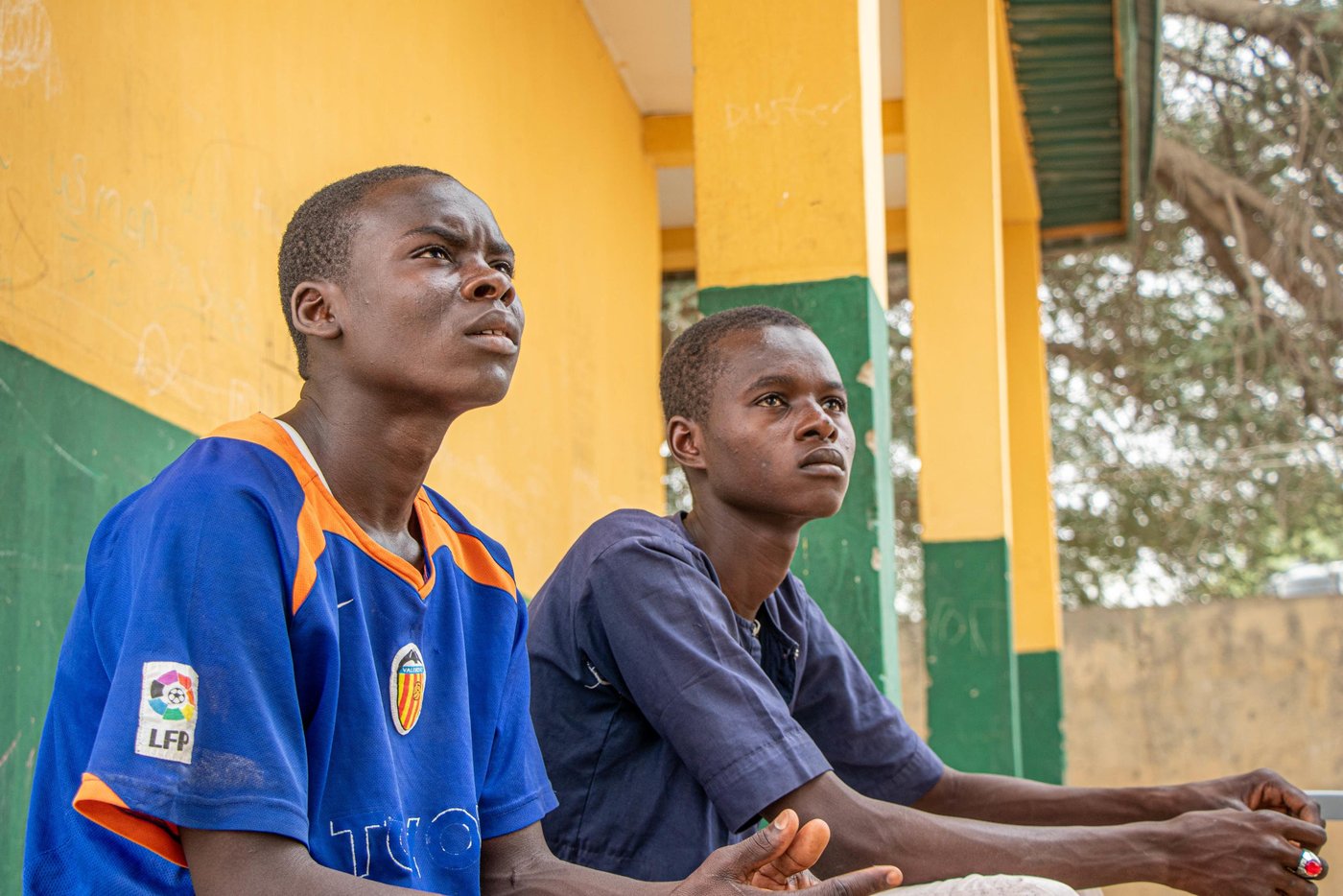Modu, 21, and his family had to flee to Dalori from their village in 2014.
“We would hear gunshots from far away and our fathers would send the women and children to the next community for their safety while they stayed at the bank of the river,” Modu recalls.
His family had already been displaced six times. On the seventh occasion, as the armed groups attacked their community, they fled yet again to Dalori. This time, they hoped it would be the final time.
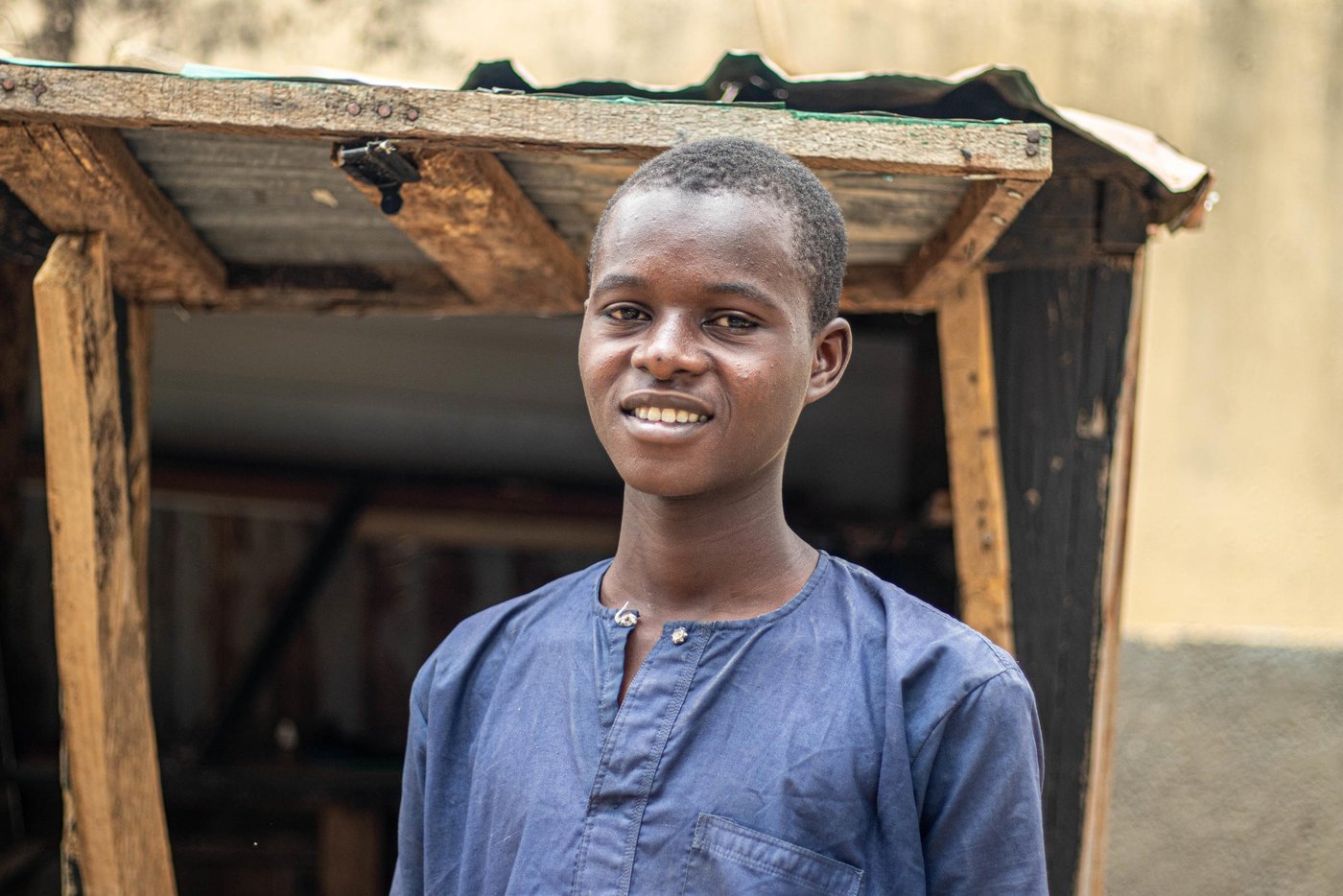
Losing everything
Borno state has been the epicentre of the almost 13-year long conflict that has displaced over 2.2 million people from their homes, devastated livelihoods, and disrupted access to education. Many people are staying in camps where they are heavily reliant on humanitarian assistance. Others live among the host community, some having to build makeshift shelters from dried sticks and thatch. This is where Modu and his friend Ali, 20, live with friends.
“We cannot go back now, our community is not yet safe,” says Modu. “We prefer to stay here in Dalori for now where we know there are no fears of attack.”
He was only 13 years old when they came to Dalori for the last time. Since then, he and his siblings have been working on the farms trying to make some money to support their parents to buy food and other essentials.
Ali’s story is very similar. He too had to flee his hometown in 2014.
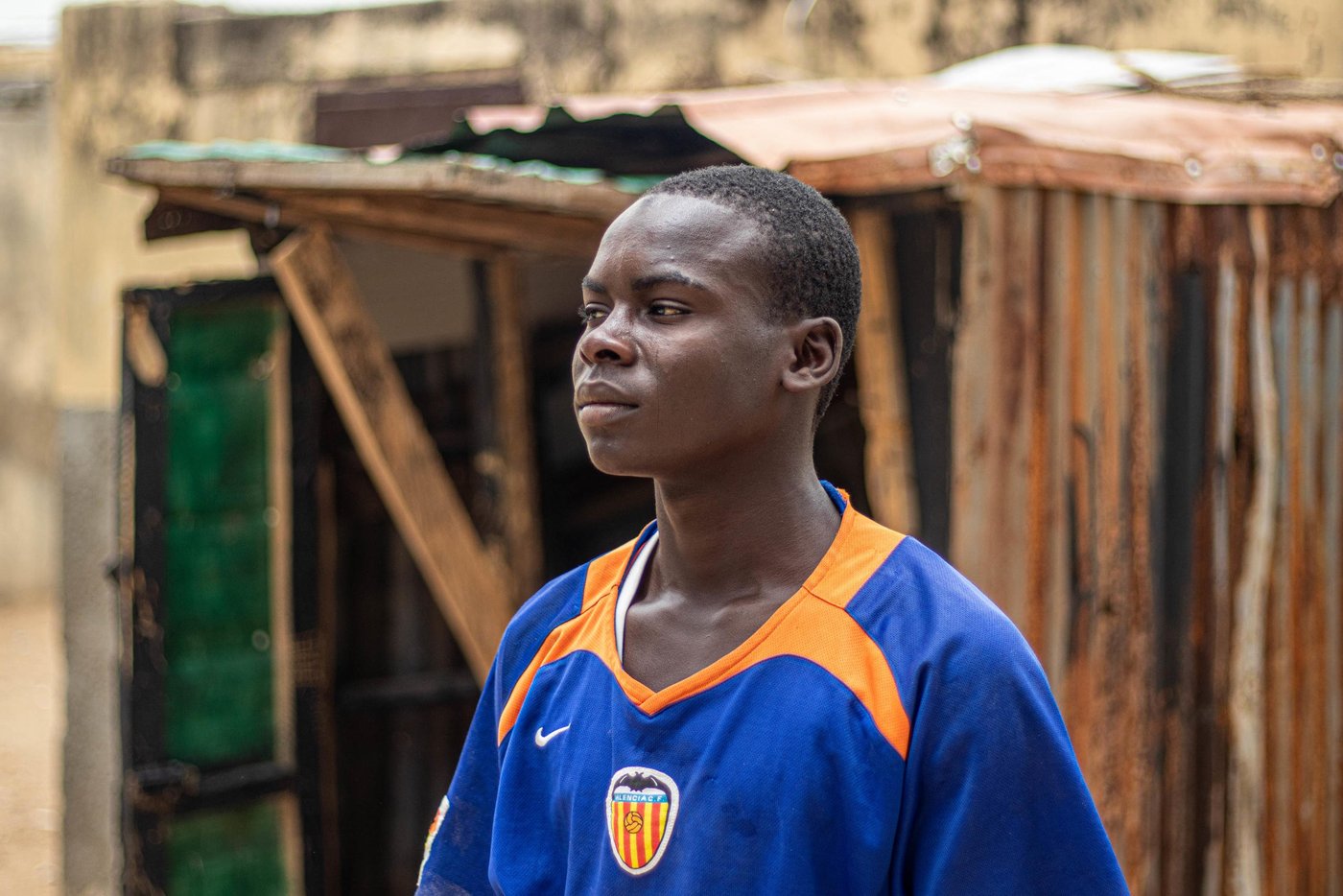
“It was a cool evening and we were doing our Qur’anic recitations when we started hearing gunshots,” Ali remembers. “Everyone ran here and there without any direction. There was confusion everywhere. I lost seven of my brothers that day.”
Ali was just 12 years old at the time. Since then, he has been working day and night to fill trucks with stones and sand to support his parents who, previously working as farmers in Bama, have not been able to find work in Dalori. This made it impossible for them to provide for Ali and his remaining siblings.
Before fleeing, Modu had received primary education while Ali was only engaged in informal religious schooling.
“I could not continue going to school,” Modu says. “We were afraid at the time to go to schools because schools and children were the targets of the armed groups.”

Fatima is just 21 years old, yet she has experienced more than any girl her age should. Also displaced from her hometown in 2014, she is married with three children and stays with her husband and children in a makeshift shelter in Dalori. As a female, she was not sent to school when she was younger as her parents did not think it was important for her to receive an education. She barely remembers details of her displacement.
“It was very hard for me. Very traumatising,” she says.
Changing the tides, a new lease of life
Today, the tides have changed. Modu, Ali and Fatima are enrolled in literacy and numeracy catch-up classes and vocational training run by the Norwegian Refugee Council (NRC). The project is funded by the European Union through the United Nations Children’s Fund (UNICEF). The aim of the project is to empower young people between the ages of 15 and 24 years who have been forced to miss education due to displacement.
Fatima was selected in August 2021 to participate in the catch-up classes. As someone who had never had any experience in a school, this made her very happy.
“When I joined the classes, I could not even spell my name or solve basic math problems," she says. "Now, I can even spell my name and my father’s name without any help.”
She has been taught basic skills in fashion design and was given a sewing machine and other tools required to set up her own business. For this, her new writing and numeracy skills have proved very valuable. These days, she sits under a tree in her small community where she makes dresses and mends old ones.
“This skill has helped me to earn a living. I now have a source of income with which I can support my family,” she says. “I was very happy when I was selected to learn this skill. I believe when you put your mind to something, you can surely achieve it.”
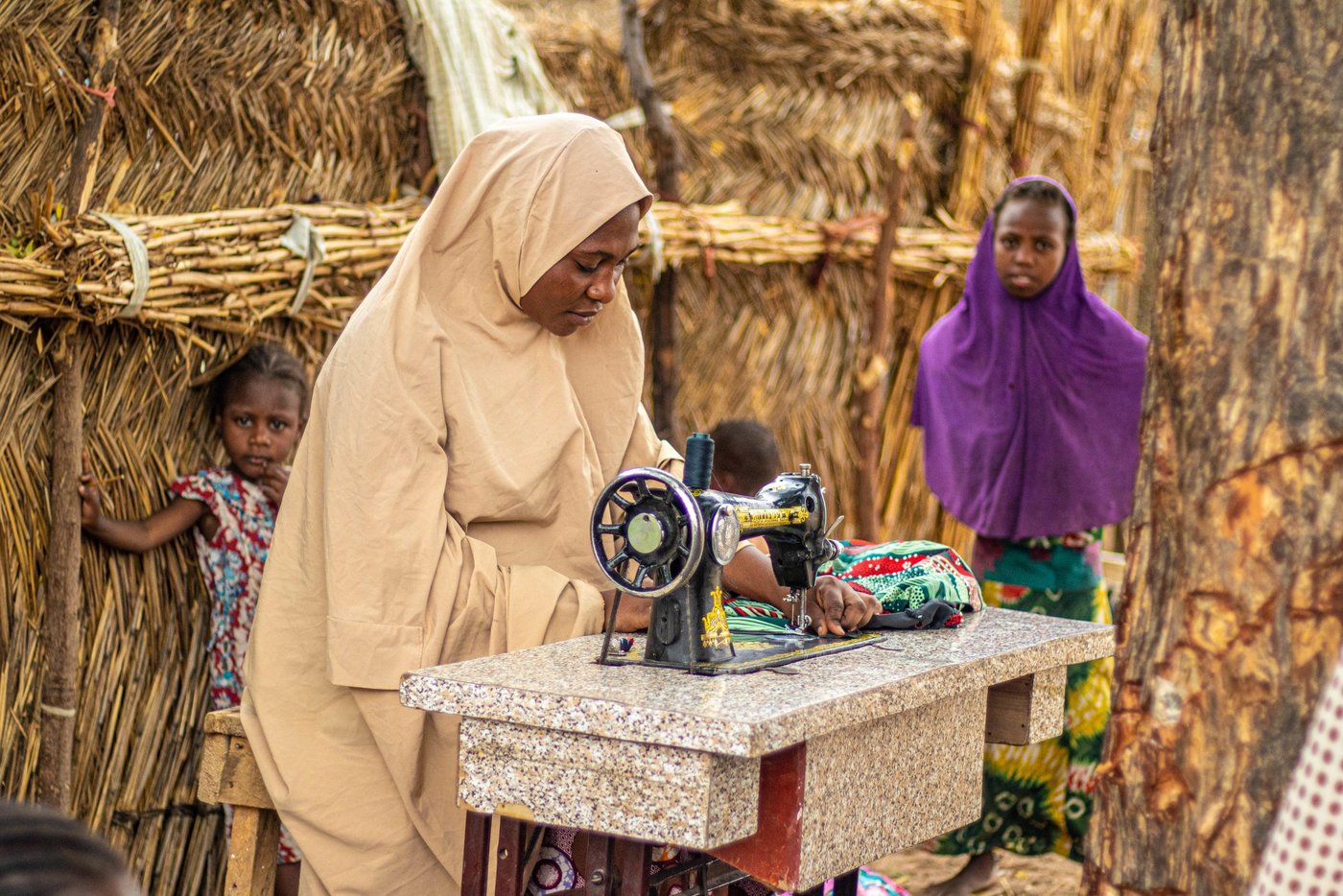
“I want to go to school, I want to be able to learn even more than I have. I see myself having a big fashion studio in future and I need to be well educated to achieve that. Education is key,” she says when asked about her hopes for the future.
She is now encouraging her parents to enrol her younger siblings in NRC’s catch-up classes.
Modu and Ali learnt barbing skills. They’ve been good friends since they arrived in Dalori, and have decided to start a joint business together. They’ve set up a small store where they provide haircuts to boys and men in the community.
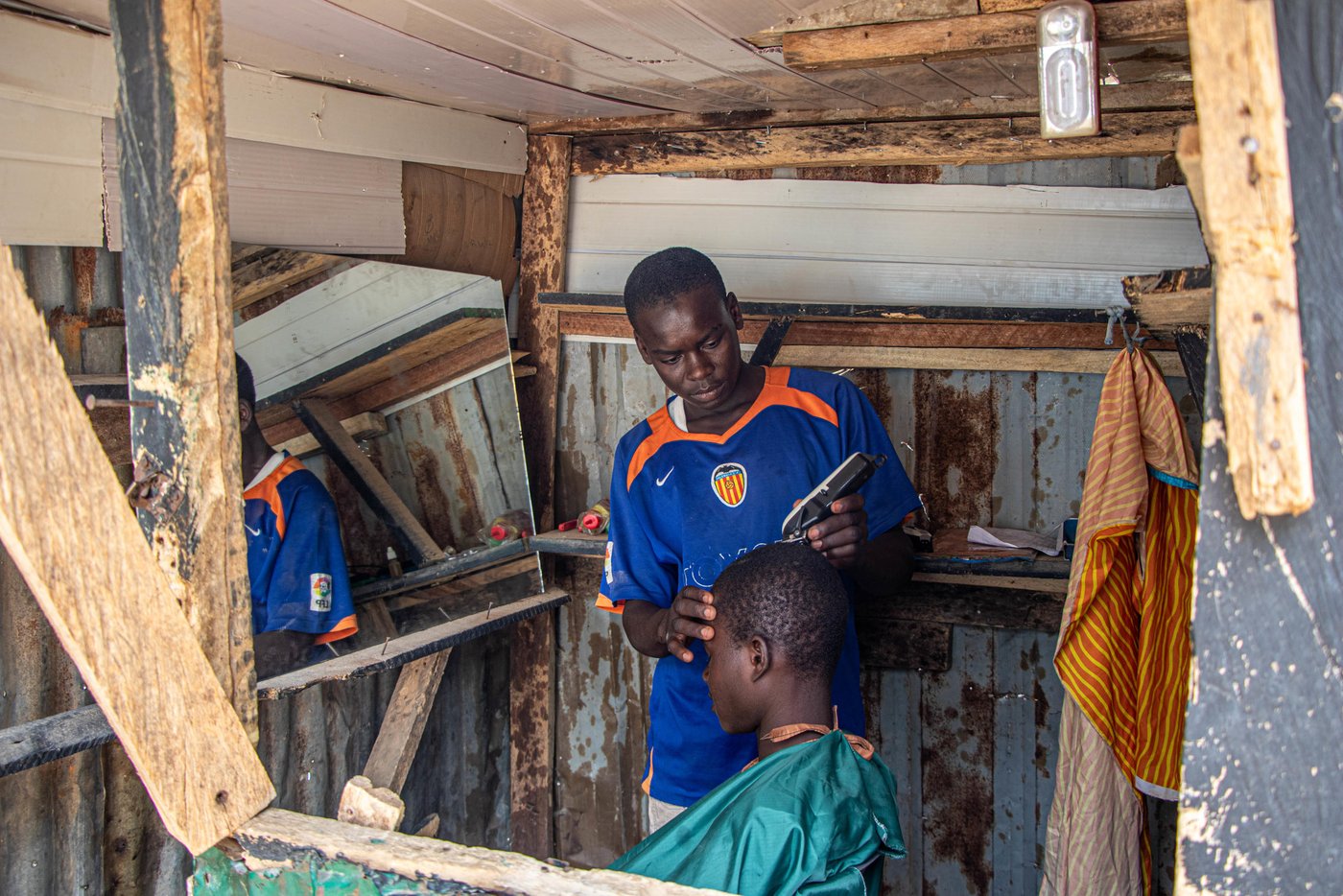
“I learnt about these courses from my peers and when I went to make enquiries, I told them how I had nothing to do and I needed the support. I was registered to learn how to be barber,” says Ali.
He immediately stopped working as a labourer once he received the start-up kit consisting of clippers, a mirror and other items needed to set up his own business.
“We can send money to our parents now,” Modu says happily. “I have just bought clothes for my younger siblings for the Eid celebration coming up soon.”
The boys have high hopes for their future. Modu wants to be a doctor and Ali would like to be a lawyer.
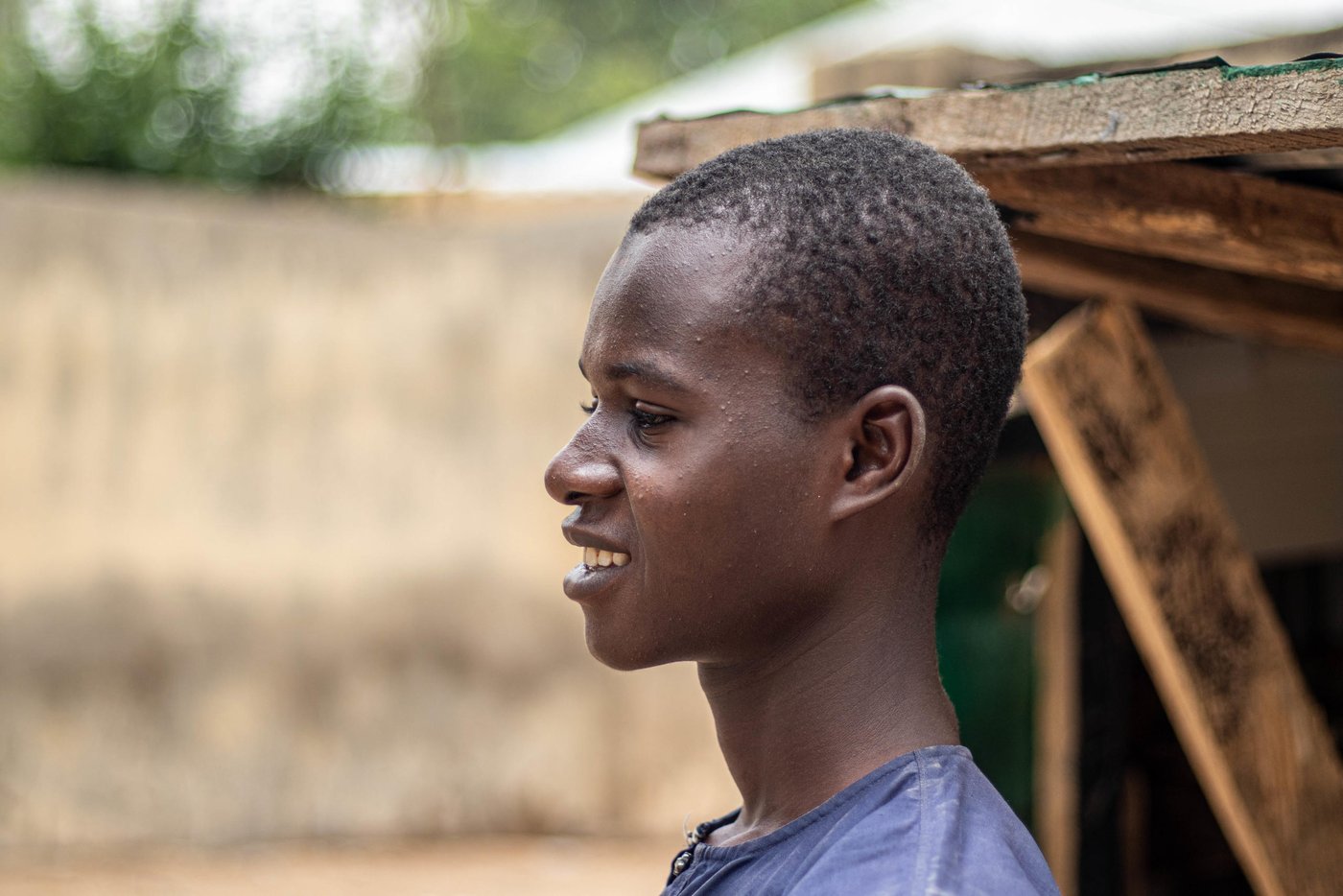
Education challenges in north east Nigeria
Education in north east Nigeria has suffered because of the conflict. Many schools have been closed or destroyed, and schools have been targeted by armed groups. Many children are afraid to go to school for fear of being targeted. About 10.5 million children are not in school in Nigeria. The crisis has put an already fragile education system at more risk.
Poverty remains one of the greatest barriers to educational access, with parents being unable to afford education fees and levies. The poor quality and lack of classrooms, school furniture, and water, sanitation and hygiene facilities, are also critical barriers. The insufficient number of qualified teachers and lack of teaching and learning materials have also contributed to poor attendance and retention of children in schools. Additionally, girls in the north of the country face greater barriers to accessing education due to early marriage and socio-cultural norms. The majority of girls in the north of the country do not attend primary school, with only 41 per cent of eligible girls receiving a primary education and 47 per cent in the north-west.
While interventions like this help empower young people, basic education must be made available to children and young adults. There must be more support to eliminate the barriers that are preventing them from accessing education.
Read more about our work in Nigeria
Sources: UNICEF Nigeria


